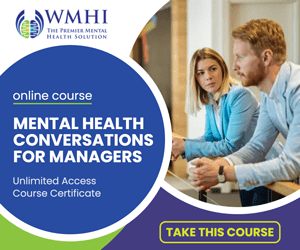One major way to improve your mental health is by getting a better sleep. If you did not know it before, sleep and your mental health are closely related. It’s such that living with a mental health condition can affect how well you sleep and poor sleeping hygiene can harm your mental health. If you want better mental health, then you have to ensure you’re getting enough sleep.
According to the Centers for Disease Control and Prevention (CDC), a third of adults in the United States of America report not getting the necessary amount of sleep every night. This only means that many adults are struggling to maintain good physical and mental health.
In this article, we will be addressing the impact sleep has on mental health. The article will also highlight ways to maintain good sleep hygiene.
How does sleep impact mental health?

As mentioned earlier, there is a close relationship between sleep and mental health. For instance, if you constantly go on without adequate sleep, you will find that you’re always tired.
When you are tired, it becomes more difficult to cope with daily life and responsibilities. This could, in turn, affect your self-esteem; low self-esteem could also lead to stress or worry. Stressing out about something or worrying over an issue leads to a lack of sleep. Thus, the cycle continues.
A lack of sleep plays a causal role in the development and maintenance of various mental health problems. For instance, when you have problems with sleeping, you are more likely to experience mental health issues like anxiety, depression, suicidal thoughts, etc.
In addition to sleep deprivation impacting mental health issues, people with mental health problems like bipolar disorder, Attention Deficit Hyperactivity Disorder (ADHD), etc., are more prone to experience sleep problems.
How can you maintain sleep hygiene?
Basically, sleep hygiene covers all those habits that you adopt to help you sleep better. Having good sleep hygiene involves putting yourself in the best position, physically and mentally, to sleep well every night.
Paying close attention to your sleep hygiene is a great way to ensure you get a good night’s sleep. It involves having the right environment, sleep schedule, sleep routines, etc.
Luckily you can tailor your sleep hygiene practices to fit your peculiar sleep needs. Moreover, improving your sleep hygiene has little to no cost and has no risk. So, it would be best if you took maintaining your sleep hygiene seriously.
Below are ways in which you can maintain good sleep hygiene.
1. Set your sleep schedule
When you have a set sleep schedule, it helps your brain and body get accustomed to getting the right amount of sleep that you need. For instance, you should have a fixed wake-up time, whether it’s a weekday or weekend.
This is because a fluctuating schedule keeps you from getting consistent sleep. Also, when setting your sleep schedule, calculate a target bedtime using your fixed wake-up time. That is, if you wake up by 7 am every day, your bedtime should be eight or more hours earlier.

2. Follow a nightly routine
The way you prepare for bed each night can determine how easily you will fall asleep and enjoy your night’s rest.
For example, when you consistently follow the same nightly steps and routine of brushing your teeth, wearing your pajamas, etc., it can reinforce in your mind that it’s your bedtime.
3. Cultivate healthy daily habits
The bedtime habits you carry out are not the only ones that affect your ability to get a good sleep. The activities you engage in during the day can also determine if you sleep well or not. Some healthy daylight activities you can incorporate include:
- Getting sufficient exposure to sunlight
- Be physically active
- Avoid alcohol and cigarettes
4. Optimize your sleeping environment
The environment you intend to sleep in has to be in top condition if you hope to maintain good sleep hygiene. To sleep better, you need to ensure your bedroom is tranquil and free of disruptions or distractions. Some tips which you can follow to improve your sleeping environment are:
- Choose the mattress and pillow that will suit you
- Have excellent bedding, i.e., blankets and bedsheets
- Set your room to the best temperature, preferably between 60°F and 67°F
- Dim or completely switch off the lights
- Try using calming scents like lavender
- Drown out noise by using earplugs or a white noise machine
5. Relax and clear your mind before bed
Relaxing your mind and eliminating every hint of worry and stress can play a huge role in maintaining healthy sleep hygiene. In addition, you can try meditation, yoga, reading a book, etc., before you go to bed each day.
Give yourself at least 30 minutes before bedtime to wind down and enter into a state of calm before bed.
What are the effects of lack of sleep?

Sleep can be said to “reset” brain activities. A night’s rest helps restore the brain and brain functions. Also, sleep helps improve brain activity each day.
However, there are common sleep disorders that people could have. These sleep disorders negatively affect the patient, both mentally and physically. These sleep disorders include insomnia, sleep apnea, narcolepsy, etc. If you have any of these sleep disorders, it’s best to follow the treatment plan proposed by your doctor.
Below are some of the most common effects of lack of sleep.
1. Anxiety
Sleep deprivation can lead to anxiety. The body is unable to function properly when it lacks sleep and this affects the body’s central nervous system. Therefore, it’s possible to be constantly worried and anxious due to a lack of sleep.
2. Tiredness
The body relies on sleep for a complete recharge. Therefore, a person who is sleep deprived will experience tiredness and exhaustion. This arises from the lack of rest and the body’s inability to go on a break.
3. Irritability
This is a form of agitation. Irritability can be seen in changes in a person’s mood, frustration or annoyance with other people or situations; they may get upset quickly. These mood swings occur more frequently when a person does not get a good night’s rest.
4. Reduced Cognitive Abilities
A sleep-deprived person will have slower cognitive functioning. For instance, they might take more time to make relatively simple decisions.
5. Weaker Immunity
Not getting enough sleep can lower a person’s immunity. As such, this makes them more likely to fall sick. Additionally, it can increase recovery time if a person is ill.
More tips to get better sleep at night and improve your mental health
Having a good night’s rest is one major step to improving your mental health. These tips involve changing certain habits, which may seem difficult at first. But, in the long run, you will notice positive changes in your sleeping habits and mental health.
Below are five tips you can incorporate in your daily living to improve your sleep.
1. Turn off electronic devices before bed
Electronic devices like phones and laptops emit blue light, which reduces melatonin levels in your body. Additionally, electronic devices can distract you by keeping your brain alert, making it harder to fall asleep.
Therefore, turning off your electronic devices before you go to bed will go a long way in ensuring you sleep better.
2. Exercise regularly
Exercising for at least 30 minutes every day can improve your quality of sleep and overall health/wellbeing. Additionally, if you exercise outside, you get more exposure to sunlight which will help you regulate your sleep cycle.
However, you should avoid exercising within one or two hours of your bedtime, as this can increase your energy levels and temperature.
3. Limit your caffeine intake
You should know that the effects of caffeine could last for up to 7 hours in your body. So, if you take a cup of coffee in the afternoon, you may find it difficult to fall asleep by bedtime. Therefore, if you cannot avoid caffeine totally, limiting your caffeine intake to the morning hours is advisable.

4. Take a Melatonin supplement
Melatonin is a key hormone that controls your sleep/wake cycle. It tells your brain when it is time to relax and head to bed. When melatonin is low in an individual’s body, such a person may suffer from poor sleep habits.
Luckily, some supplements help to regulate melatonin in the body. Insomnia patients usually use these supplements, and they help people fall asleep easier and faster.
5. Don’t eat late in the evening
When you eat late at night, you negatively affect your sleep quality and melatonin levels. Also, the quality and type of “late-night snack” you have at night can affect your sleep. Therefore, because of this, your last meal should be taken at least four hours before bed.
Conclusion
In conclusion, this article has said a lot about mental health and its connection with sleep. Plain and simple, if you sleep well, you will notice a major improvement in your mental health.
You can be sure that your mental health will flourish when you follow the tips in this article like turning off electronic devices, exercising regularly, and maintaining a healthy sleep hygiene.









